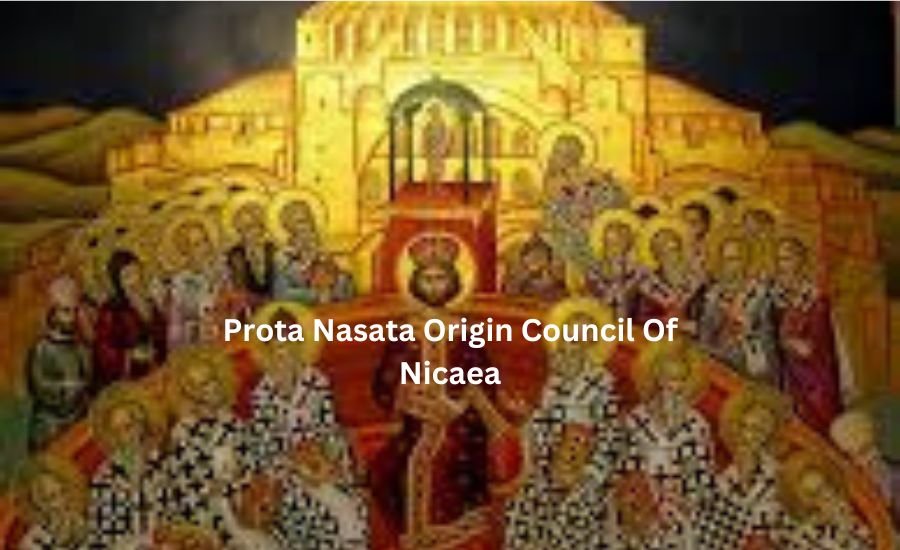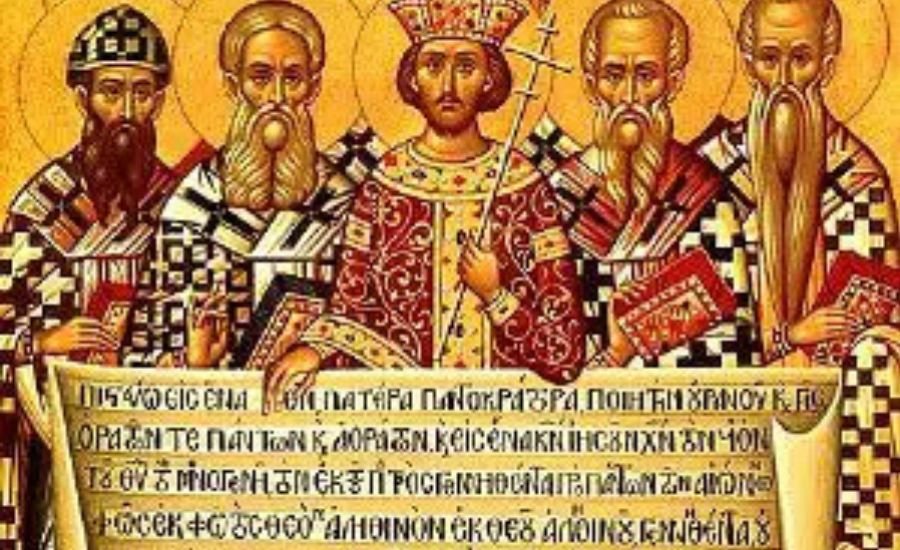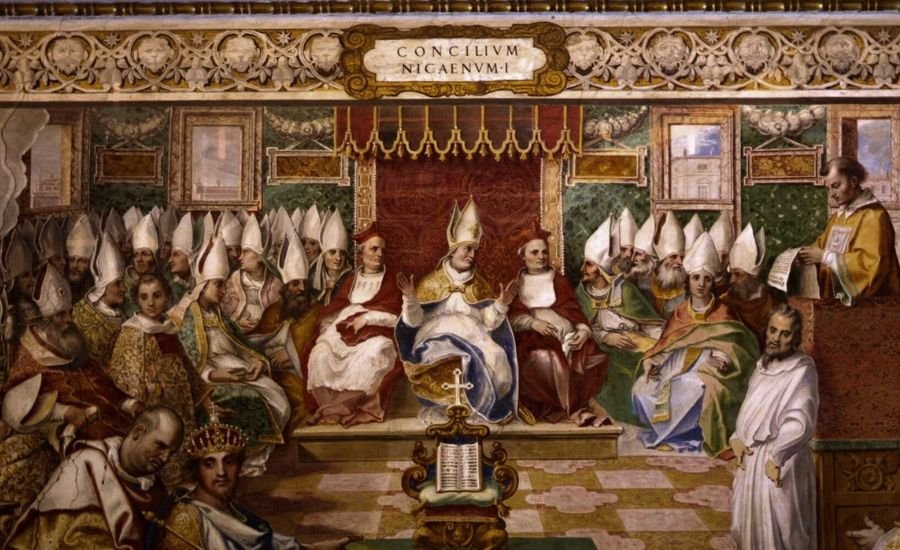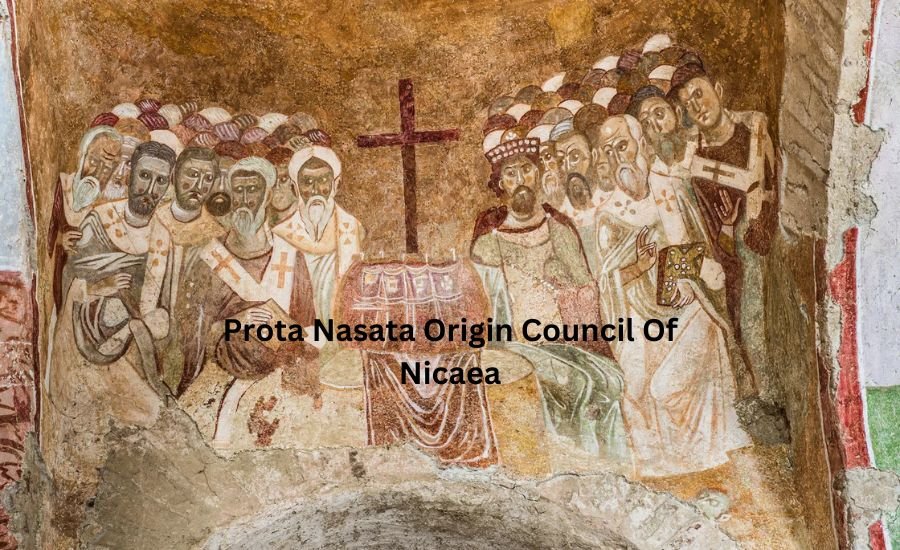Welcome to our blog at Worldwids. The “prota nasata origin council of nicaea” is a fascinating topic that takes us back to a very important meeting in history. This meeting, called the Council of Nicaea, happened long ago in 325 AD. It was held to solve big questions about Christianity and how people understood their faith.
At this council, many leaders gathered to discuss beliefs and rules. One of the most exciting ideas discussed was the “porta nasal origin.” This phrase helps us understand where certain beliefs came from and how they grew over time. Let’s explore this topic together and find out more about its significance!
What is the Prota Nasata Origin Council Of Nicaea?
The term “prota nasata origin” refers to the beginnings of certain Christian beliefs. It helps us understand how ideas formed long ago. When we talk about the origin, we mean where something starts. In this case, it’s about the beliefs that grew from the discussions at the Council of Nicaea.
Many must learn that the Council of Nicaea prota nasata origin council of nicaea played a crucial role in shaping these beliefs. At this critical meeting, church leaders came together to talk about faith. They wanted to agree on what was true and what was not. This helped create a strong foundation for Christianity, influencing many people worldwide.
Understanding the origin of porta data helps us see how beliefs have changed over time. Ideas that seemed new or strange became accepted parts of the Christian faith. Learning about this origin allows us to appreciate the history of Christianity even more.
Many people today still study these origins to better prota nasata origin council of nicaea understand their faith. Looking at the past can teach important lessons for the future. Exploring where these beliefs began can give insight into the Christian faith’s journey.
The Council of Nicaea: A Brief Overview

The Council of Nicaea was held in 325 AD. This was a time when Christianity was still growing. Many different ideas existed about how to practice the faith. Church leaders knew they needed to come together to talk about these ideas and find common ground.
During the council, about 300 bishops prota nasata origin council of nicaea gathered in Nicaea, which is in modern-day Turkey. They discussed important questions about Jesus and God. Some beliefs were confusing, so they wanted to clarify what everyone should believe. This gathering was essential for uniting Christians.
The decisions made at the council had a prota nasata origin council of nicaea lasting impact. They created a statement called the Nicene Creed. This creed outlines the core beliefs of Christianity. By agreeing on these beliefs, the leaders aimed to bring harmony to the faith and reduce confusion among followers.
Many of the discussions at the Council of prota nasata origin council of nicaea Nicaea were tough. Different opinions clashed, and some leaders felt strongly about their views. However, the council helped settle disputes and build a stronger community. This was a significant step in the history of Christianity.
Key Figures at the Council of Nicaea
Many vital figures attended the Council of Nicaea. One of the most famous was Bishop Athanasius. He strongly believed in the divinity of Jesus Christ and passionately argued for his views, which influenced many others at the council.
Another key figure was Emperor Constantine. He played a crucial role in calling the council together. Constantine wanted unity in the church to help maintain peace in his empire. His support helped the council gain importance and attention.
Bishop Nicholas of Myra was also present. He is often remembered for his kindness and strong faith. Legend says he stood up for what he believed, even in the face of strong opposition. His actions during the council made him a beloved figure in Christian history.
These leaders had different prota nasata origin council of nicaea backgrounds and beliefs, but they all aimed for one goal: to clarify Christian teachings. Their discussions and decisions shaped the church’s future and influenced millions of believers worldwide.
Why Was the Council of Nicaea Important?
The Council of Nicaea was influential for several reasons. First, it helped unify the Christian faith. Before the council, many different beliefs and practices existed. By coming together, church leaders could agree on core ideas that all Christians could follow.
Second, the council produced the Nicene Creed, a foundational text for many Christian denominations. It clearly stated what Christians believed about Jesus, God, and the Holy Spirit. This clarity helped people understand their faith better and reduced confusion.
Furthermore, the council marked a shift in how the prota nasata origin council of nicaea church operated. It showed that church leaders could gather to discuss important issues. This set a precedent for future councils and discussions in the church. It became a model for resolving disputes peacefully.
Lastly, the decisions made at the council impacted how prota nasata origin council of nicaea Christianity spread. With a unified belief system, missionaries could share their faith more effectively. As a result, Christianity proliferated across different regions, reaching many new followers.
Understanding the Prota Nasata Origin
Understanding the origin of porta data is essential for grasping how Christian beliefs are formed. This term helps us connect the prota nasata origin council of nicaea discussions at the Council of Nicaea with the development of core teachings. By studying this origin, we can see how early Christians shaped their faith.
Many people today may need to realize how these origins affect their beliefs. The discussions held during the council were not just prota nasata origin council of nicaea debates; they were the foundation for modern Christianity. This connection reminds us that faith is built on history and tradition.
The porta nasal origin also encourages curiosity about our beliefs. When we learn about where ideas come from, we can question and better understand our faith. This journey of discovery is essential for anyone seeking to deepen their understanding of Christianity.
As we explore the prota nasata origin, we can appreciate the journey of faith throughout history. It’s fascinating to see how beliefs evolved and adapted over time. By knowing this history, we become more connected to the rich tapestry of Christianity.
How the Prota Nasata Origin Affects Us Today

Today, the porta nasal origin influences many aspects of the Christian life. When people attend church services or study the Bible, they often prota nasata origin council of nicaea refer to the ideas formed at the Council of Nicaea. These early decisions still guide how Christians practice their faith today.
Additionally, many church teachings and sermons are based on the Nicene Creed. This document helps church leaders explain their beliefs prota nasata origin council of nicaea clearly. Because of this, believers can feel a strong sense of unity and purpose within their communities.
Understanding these origins also helps people address questions about faith. Many believers face challenges or doubts, and knowing the historical context can provide comfort. It reminds them that faith has deep roots and a rich history.
Overall, the origin of prota nasata remains significant. It shows us how past discussions and decisions shape our present beliefs. By learning about prota nasata origin council of nicaea this origin, we can better appreciate the faith we practice and the community we belong to.
The Impact of the Council of Nicaea on Christianity
The Council of Nicaea greatly impacted Christianity, which we can still see today. One significant change was the establishment of a unified belief system. Before the council, many different ideas existed about who Jesus was and how he related to God. prota nasata origin council of nicaea The Nicene Creed, created during the council, clarified these beliefs. This helped Christians understand their faith better and brought them together.
Another significant impact was the authority given to church leaders. The council showed that bishops and church leaders could gather to discuss and prota nasata origin council of nicaea settle important issues. This set a precedent for future church councils. It made the church more organized and gave leaders the power to guide their communities.
Additionally, the decisions made at Nicaea helped Christianity grow. With a clear set of beliefs, missionaries could prota nasata origin council of nicaea share their faith more effectively, leading to the spread of Christianity to new regions and cultures. The council laid the groundwork for a more united Christian community, influencing millions of followers worldwide.
Myths and Facts About the Prota Nasata Origin
There are many myths and facts surrounding the porta nasal origin. One common myth is that it refers to a single belief or idea. In reality, the porta nasal origin encompasses various teachings that developed over time. Understanding this complexity helps us appreciate the rich history of Christian beliefs.
Another myth is that the Council of Nicaea prota nasata origin council of nicaea created Christianity. While it was necessary, Christianity existed before this council. The council clarified and unified many of the beliefs that were already being practiced. It helped shape the faith but did not create it from scratch.
Some people think that the council’s decisions were universally accepted without dispute. However, this was different. There were disagreements and debates among church leaders. While the council reached essential agreements, many continued to hold different views. This diversity of thought remains a part of Christian history.
The Role of Bishops at the Council of Nicaea
Bishops played a crucial role at the Council of Nicaea. They were the leaders of local Christian communities and brought their unique perspectives to the discussions. Their presence was vital for representing the beliefs of different regions and cultures.
During the council, bishops debated important theological questions, such as the nature of prota nasata origin council of nicaea Christ and the relationship between Jesus and God. These debates helped shape the Nicene Creed, which outlined core beliefs. The bishops’ discussions were not just formalities; they were passionate exchanges of ideas.
Some bishops, like Athanasius, were particularly influential. Their strong convictions prota nasata origin council of nicaea helped sway others’ opinions. The council was a platform for these leaders to voice their beliefs and work towards unity. Their efforts helped create a more organized church that could guide its followers.
Exploring Early Christian Beliefs
Early Christian beliefs were diverse and sometimes confusing. Before the Council of Nicaea, different groups had various interpretations of critical teachings. Some prota nasata origin council of nicaea believed that Jesus was a great teacher, while others saw him as divine. The council aimed to clarify these beliefs and provide a common understanding.
One central belief discussed was Christ’s divinity. The council affirmed that Jesus was both fully human and fully divine, a significant point of agreement among the bishops. By establishing this belief, the council helped define what it meant to be a Christian.
Exploring these early beliefs helps us understand how Christianity evolved. The discussions at the council reflected the struggles and questions of the time. These debates laid the groundwork for the core teachings that many Christians still follow today.
What Did the Council of Nicaea Change?

The Council of Nicaea brought about several important changes. One of the most significant was the creation of the Nicene Creed. This document established essential prota nasata origin council of nicaea beliefs that all Christians could accept. It provided a clear definition of faith, which was necessary for unity.
Another change was the way church leaders interacted. The council set a precedent for future gatherings of bishops and church leaders. They learned they could come together to discuss important issues and resolve disputes. This practice became common in the church, leading to more organized governance.
Additionally, the council addressed issues of heresy. It prota nasata origin council of nicaea condemned certain beliefs that were considered incorrect. This helped define orthodox Christianity and provided a framework for what it meant to be a believer. The changes made during the council had a lasting impact on the development of Christian doctrine.
Do You Know: How-To-Catapult-In-Pubg-Xbox
Prota Nasata Origin in Modern Discussions
Today, the origin of porta nasata is still a topic of discussion among theologians and believers. Many look back at the Council of Nicaea to better understand their faith. By examining these origins, they can connect with the historical roots of Christianity.
In modern discussions, scholars explore how early beliefs influence current practices and ask questions about how interpretations have changed over time. Understanding the porta nasal origin allows for deeper insights into contemporary faith and worship.
Moreover, this topic encourages believers to reflect on prota nasata origin council of nicaea their own faith journeys. They can better understand their beliefs and why they hold them by learning about the past. This connection to history can strengthen their faith and inspire them to explore further.
Learning from the Council of Nicaea
The Council of Nicaea teaches us valuable lessons about unity and understanding. It shows us that people can come together to seek clarity even when disagreements exist. The bishops demonstrated that dialogue and discussion are essential for resolving conflicts.
Another lesson is the importance of solid leadership. The bishops at the council took on the responsibility of guiding their communities. Their commitment to their faith and willingness to debate helped shape the future of Christianity. This example encourages modern prota nasata origin council of nicaea leaders to engage in thoughtful discussions.
Finally, the council reminds us of the significance of history. Learning about the past helps us understand the present. By studying the origin of the Council of prota nasata origin council of nicaea Nicaea and the prota nasata, we can appreciate the journey of faith that continues today. This awareness enriches our understanding of Christianity and its teachings.
Conclusion
In conclusion, the origin of prota nasata holds a special place in Christian history. The discussions at the Council of Nicaea were pivotal in shaping beliefs that still resonate today. Understanding this legacy helps us appreciate how far Christianity has come.
The decisions made at the council created a framework for faith that many Christians follow. This legacy continues to guide believers in their spiritual journeys. By learning about the origins of these beliefs, we can connect with the rich history of our faith.
As we move forward, let’s remember the lessons learned from the past. The prota nasata origin reminds us of the importance of unity, dialogue, and understanding in our communities. This legacy is a precious gift we can carry as we grow in our faith.
Latest Blog: Tot-Odp-Swp-Cr-Memo
FAQs
Q: What was the Council of Nicaea?
A: The Council of Nicaea was a meeting of Christian bishops held in 325 AD in Nicaea. At this meeting, they discussed critical theological issues and established a unified Christian doctrine.
Q: What is the prota nasata origin?
A: The prota nasata origin refers to the beginnings and development of specific Christian beliefs that were clarified during the discussions at the Council of Nicaea.
Q: Why was the Nicene Creed created?
A: The Nicene Creed was created to provide a clear statement of Christian beliefs, helping unify Christians and clarifying misunderstandings about the nature of Jesus and God.
Q: Who were some key figures at the Council of Nicaea?
A: Key figures included Emperor Constantine, Bishop Athanasius, and Bishop Nicholas of Myra, each contributing significantly to the discussions and decisions made.
Q: What impact did the Council of Nicaea have on Christianity?
A: The council established foundational beliefs for Christianity, helped unify the faith, and set a precedent for future church councils to resolve disputes.
Q: Did everyone agree with the decisions made at the council?
A: No, not everyone agreed. There were disagreements and varying interpretations of beliefs, but the council aimed to create a shared understanding among Christians.
Q: How does the prota nasata origin relate to modern Christianity?
A: Understanding the prota nasata origin helps modern believers connect with their faith’s historical roots and appreciate how early discussions shape current practices.
Q: What lessons can we learn from the Council of Nicaea?
A: The council teaches the importance of unity, dialogue, and strong leadership in resolving conflicts and guiding a community of faith.
